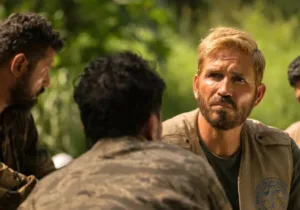The long and age-old discussions in contemporary politics about the role of ethics in international politics is nothing new. The so-called “Torture Report”, detailing American interrogation practices in the early phases of the American war on terror, and the Joint Comprehensive Plan of Action (JCPOA) nuclear agreement reached by the P5+1 only serve to highlight the fissures that exist in our society over various moral judgments about politics.
Because American society at large has its opinions on these important issues – they overwhelmingly support the interrogation techniques by a margin of almost 2 to 1 and oppose the JCPOA by even higher margins – it would seem self-evident that ethics definitely inform our politics. So what’s the worry? My worry is not so much about public opinion but about the ways in which moral deliberation shapes and guides our policies as a whole. Leaving aside the rightness or wrongness of any particular policy, it seems clear that there is a deep division between the worlds of policy making and the worlds of moral reflection.
Our world of ever increasing specialization or “rationalization,” in Weberian terminology, has created hermetically sealed worlds of specialists that do not speak to each other, and our politics is not the better for it. Think about how foreign policy is crafted. The actual people with the expertise in foreign policy often live and work in circles surrounded by other specialists in foreign policy with little to no training in ethics. These specialists have vast and complicated understanding of Russian military strategy but little comprehension on the nature of virtue theory or deontological ethics. But even if they do have a little training, there is little understanding about how to integrate the two. Disciplinarian boundaries, instead of being viewed as permeable, are taken as permanent and solid. There is a disciplinarian problem and an integration problem.
Just to be clear, I do think moral judgments of all sorts shape our policies, but they are latent, tacit, and assumed. That is the problem. I don’t just want our foreign policy to be shaped by “morality;” it should be shaped by robust moral reflection and deliberation. By that I mean that we think about our policy and its implications in a systematic and rigorous way. The empirical world the policy makers and politicians live and work in comes into real contact with the world of moral reflection and deliberation.
Too often the concept of “interests” substitutes for moral reflection, as though this were adequate to describe the deep and complex moral terrain that policy makers are covering. Realist thinking in foreign affairs falls woefully short in this respect. Ethics is not interests, and reducing it to interests undermines the whole moral enterprise of foreign policy that Americans believe, rightly, is a moral enterprise in itself. But realists do have a point. Too often liberals and international lawyers have a moralistic position on politics and foreign relations that is fanciful, as though our moral purity and good intentions are enough to assuage vicious dictators and grapple with policy dilemmas that have no feel-good outcome. Realists may have a desiccated notion of ethics, but they do have a clear-eyed perception of the world, which is brutal, bloody, and tragic.
Into this set of problems we should be clear that the church also bears responsibility for this disconnect. Christians and evangelicals are sadly known more for their moral judgments than nuanced moral and political reasoning. We are excellent in denunciations but terrible in deliberations. What Christians do we know who are committed to bridging these divides? The number is sadly very small. Reinhold Niebuhr, though problematic, attempted to bridge these divides and should at least be looked to as an example worthy of imitation. The Catholic church has a long tradition of social teaching tradition that takes these questions seriously.
Mainline Protestants have provided leadership for the U.S. since its founding, but with the demise and decline of the mainline upon us, it is time for evangelical Protestants to take up the mantle in a serious way. This means it’s time for evangelicals, in the words of 1 Corinthians 13, to put our childish ways behind us. We must grow up. No longer can we quote chapter and verse from a bible passage and imagine that it translates seamlessly into our world two millennia later. We must put as much effort into moral reflection that we do to exegesis of the bible and biblical theology. Look at the faculty that makes up evangelical seminaries across the U.S. How many ethicists do you see? Answer: not many.
Luckily, we are not starting from square one. Christians have a two millennia political tradition to draw upon. This means we must get over our allergy to Catholicism and history. Hugo Grotius, a Dutch Protestant, wrote one of the most substantial treatises on war in Western civilization, drawing heavily on these very resources. Catholics have much to teach Protestants about moral theology and politics. We should listen.
Daniel Strand is a postdoctoral fellow in the Center for Political Thought and Leadership at Arizona State University. His scholarly interests are in history of political thought, religion and politics, and the thought of St Augustine of Hippo.







 Sponsor a student for Christianity & National Security 2024
Sponsor a student for Christianity & National Security 2024